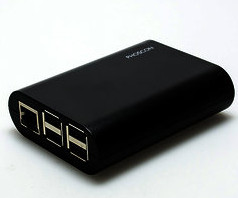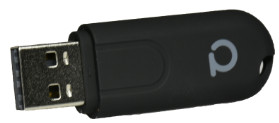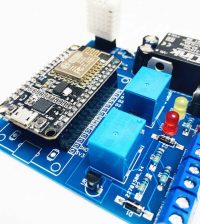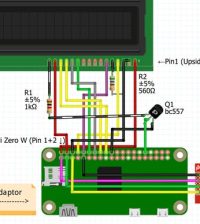- How to Adjust X and Y Axis Scale in Arduino Serial Plotter (No Extra Software Needed)Posted 7 months ago
- Elettronici Entusiasti: Inspiring Makers at Maker Faire Rome 2024Posted 7 months ago
- makeITcircular 2024 content launched – Part of Maker Faire Rome 2024Posted 9 months ago
- Application For Maker Faire Rome 2024: Deadline June 20thPosted 11 months ago
- Building a 3D Digital Clock with ArduinoPosted 1 year ago
- Creating a controller for Minecraft with realistic body movements using ArduinoPosted 1 year ago
- Snowflake with ArduinoPosted 1 year ago
- Holographic Christmas TreePosted 1 year ago
- Segstick: Build Your Own Self-Balancing Vehicle in Just 2 Days with ArduinoPosted 1 year ago
- ZSWatch: An Open-Source Smartwatch Project Based on the Zephyr Operating SystemPosted 1 year ago
Dresden-Elektronik Unveiled Two ZigBee Home Automation Gateways

Dresden-Elektronik announced the release of a ZigBee-enabled home automation hub based on a Raspberry Pi 3 SBC, as well as a second-gen USB dongle for enabling laptops and other Linux and Windows computers with a ZigBee gateway: the ($170) Phoscon Gateway and ($38) ConBee II USB dongle.
- The Phoscon Gateway, which supports up to 200 ZigBee nodes, appears to run on the original Raspberry Pi 3 SBC and it’s enabled with the Raspberry Pi’s 10/100Mbps Ethernet port and WiFi. Other listed specs include the 2.4GHz ZigBee radio, an HDMI port, a microSD slot, a micro-USB port for power, and a power adapter. The device supports -20 to 55°C temperatures. The hub can also be used as a standalone WiFi access point.
- Compared to the original ConBee stick, the new ConBee II ZigBee USB dongle offers an improved signal amplifier with longer radio range and features a 32-bit Cortex-M0 controller (Microchip’s ATSAMR21E18A) instead of the previous 8-bit AVR-based SoC. The USB stick offers IP20 protection and supports -20 to 55°C temperatures.
These gateways are compatible with almost all known manufacturers of commercial and DIY Zigbee devices, such as Philips Hue, IKEA Tradfri, OSRAM Lightify, Xiaomi Aqara, Innr, XBee Series 2, Trust Zigbee, and Dresden Elektronik’s own FLS ballasts.
Both devices run Dresden-Elektronik’s deCONZ Zigbee Gateway software that supports intelligent control of smart lighting, sensors, and switches via the short-range, 2.4GHz ZigBee (IEEE 802.15.4) wireless mesh networking standard. The software works in conjunction with a new Phoscon App, which runs on Android and iOS mobile devices or any web browser.
















